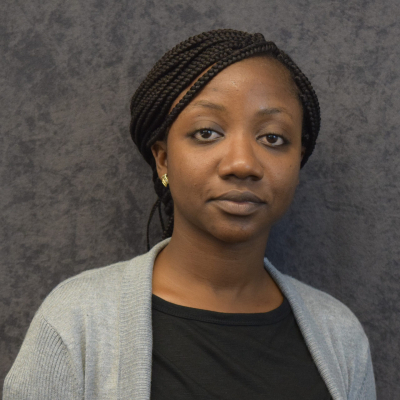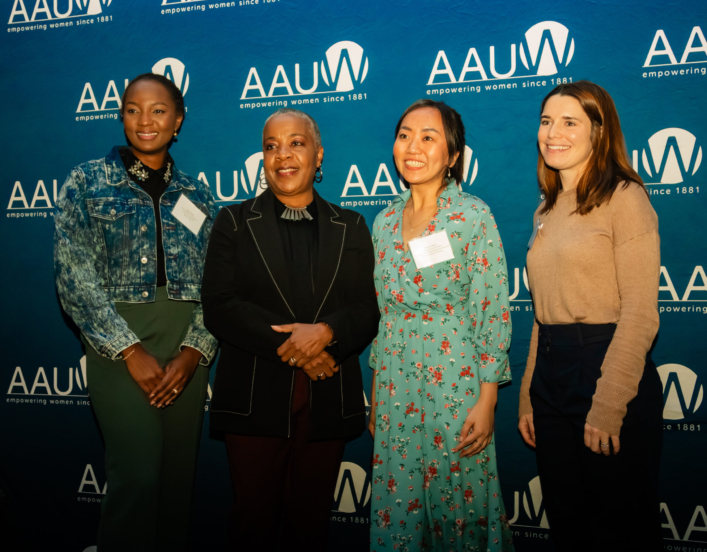3 Questions for Olamide Opadokun
Quick Insight
More than ever, people can see that climate patterns are changing. Adopting clean energy technology might not fix all the problems, but it can prevent further damage.

Olamide Opadokun, a 2018-19 AAUW International Fellow, understands how alienated women can feel when pursuing technical careers. As an undergraduate at The University of Ilorin in Nigeria, she was the only woman among 87 students in mechanical engineering.
“Being a woman in a STEM field, especially in a foreign country, is not always easy,” says Opadokun, whose fellowship was sponsored by the Arconic Foundation. Her funding helped her to complete her Master’s degree at Iowa State University.
The sense of isolation she felt is one reason Opadokun was eager to mentor two first-year graduate students from other countries. “I started off explaining … what to expect in their academic programs, especially as international students—work load, research, cultural differences and otherwise,” she said.
Opadokun also makes it a habit to acknowledge their good work. “I regularly point out their achievements to show them they deserve to be in graduate school as much as anybody else,” she said. “I am honored to have the opportunity to mentor them because mentoring made a big difference for me when I started my program.” We asked Opadokun to share her insights on her educational journey and research on clean-energy technology.
How did you get interested in mechanical engineering?
When I was taking technical drawing classes in secondary school, I became fascinated by the intricacy and mental challenge of machine drawing. As I learned more, I realized mechanical engineering was right for me. It is the most diverse of the engineering disciplines—allowing career development in many directions.
Tell us about your research.
Roughly 2 billion people around the world rely on what we call “biomass”—including wood, charcoal, animal dung and crop residue—as fuel when they cook. A downside of this form of cooking is that it releases particulates and greenhouse gases into the air that can cause respiratory disease and harm the environment. It can also raise security concerns for the women and girls who must venture outside to gather these materials.
In my research, I broke down the cooking process into components to look for possible improvements. For example, I looked at whether using lids or varying food quantities can bolster efficiency—which would translate to less biomass consumed, better air quality, and more time for women and girls to pursue their educational and financial goals.
Why is clean energy so critical to ensuring a healthy planet?
More than ever, people can see that climate patterns are changing. Adopting clean-energy technology might not fix all the problems, but it can prevent further damage. It is our responsibility to care for the Earth, so we can pass along a healthy planet to future generations. Everyone can do something, whether it’s using solar panels or turning off lights and devices they’re not using.
Related
Fellowships & Grants

